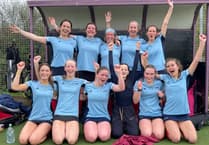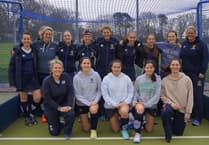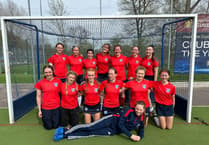Aldershot & Farnham head coach Ian Jennings has explained his reasons for leaving the club.
“It is with a very heavy heart that my position in the club became untenable from the start of this season,” said Jennings. “This was as a result of a breakdown in negotiations held over the summer as to the direction of a proportionate amount of the sponsorship money, which was overwhelmingly raised by myself, being made available for the men’s first team to give ourselves the best chance of achieving National League status – and the decision to bring to a halt the successful elite junior training academy.
“I’m happy with a number of things that have been achieved over the past seven years, although there are lessons I think need to be learnt which I hope will help the club – especially as they are now playing at the highest level in the history of the club.
“Sponsorship is a risky and delicate subject and my previous experience of running it at Guildford laid the foundations for making it a success at Aldershot & Farnham. Having lived in Farnham for many years it was only natural I would strike up a conversation with places I used or visited. One of the biggest considerations is to justify to the potential sponsor that the club are likely to use them, thereby generating some return income.
“My comments to the club would be to ensure the club gets behind any future sponsors as the size of the club membership and those supporting it have a far greater chance and impact of acquiring and retaining sponsorship. At Aldershot & Farnham the money raised went to the club, which means the support should come from all members of the club.
“Elite academy was a huge success, culminating in ten juniors brought through the club that ended up representing the men’s and ladies’ first teams. It gave the opportunity for any junior to take part in training that wasn’t for the faint-hearted. It comprised of giving them the opportunity to experience the technical and tactical side of the game, while combining it with a physical element. The beauty of the title was that the elite stood for attitude and not that you had to be the best, you just needed to have the right approach with one of the key elements being the want and desire to learn. The club made the decision last season to stop this because of financial restraints, although potential solutions were suggested. I feel the club needs to reintroduce this.
“I’m enormously proud of what we achieved as the men’s first team team. The original conversation started with the club asking me if I knew of anyone that might be interested in coaching them. Seven years and five promotions later, I’d like to think it’s been a positive return. It’s been great to have had a couple of players that have stayed for the duration and ended up playing at a level they probably only dreamed of.
“Careful recruitment and a clear strategy made us a threat in every game we played throughout the leagues. Team ethos, tough disciplined training sessions with a clear goal and everyone understanding where they fit into the jigsaw puzzle gave us a clear identity and a sense of purpose. Watching players develop, seeing how they positively change in terms of attitude, tactical understanding and a refusal to lay down and give up, has given me immense pleasure. Going forward a key element to provide the opportunity for continual success is communication. During my 24 years with the Parachute Regiment and Royal Army Physical Training Corps, without clear and precise communication and the sharing of ideas and being open to sometimes uncomfortable discussions you can quickly stagnate or sometimes devalue your assets.
“The saddest thing about my journey with the club is that myself and the players feel there’s been a massive opportunity missed and I genuinely believe if things had gone differently we would have stood the best chance of playing National League hockey. I wish the club all the best for next season and I’m sure things have already been put in place to continue the development of the men’s first team.”



